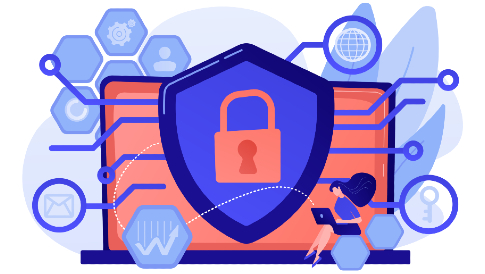Why is Omnichannel Marketing Crucial for Online Business?
There is no doubt that we are living within an incredibly interconnected digital community. This is why businesses must adopt even more cutting-edge marketing tactics if they hope to remain well ahead of the competition. One common strategy involves a concept known as omnichannel marketing. What does this approach involve? What specific channels should be considered? What advantages will it provide? We will examine these three critical questions throughout the remainder of this article.
Omnichannel Marketing
Omnichannel marketing is referred to as multichannel marketing. It involves promoting products and services across a variety of platforms while ensuring a seamless and cohesive experience for the customer. This strategy is more than just being present on multiple platforms. It’s about creating an integrated customer journey.
For instance, the information contained within a standalone website can be linked directly to a Facebook product feed. Simultaneously it offers a customer support via WhatsApp or live chat. Meanwhile, email campaigns and SMS notifications could be tailored to individual preferences. The goal is to meet customers wherever they are and provide consistent messaging and branding across all touchpoints.
Unlike traditional marketing, where platforms might operate independently, omnichannel marketing synchronizes these channels. This leads to creating a unified experience. This interconnectedness enhances visibility and increases the likelihood that visitors will engage with your business and eventually convert into loyal customers.
Key Channels for Omnichannel Marketing

Omnichannel marketing works best when you’re using the right channels in a way that feels natural to your customers. Here’s a look at some of the most important tools that you should use:
Social Media Platforms
Social media is where your audience spends a big chunk of their time. This makes it essential to any marketing strategy. Platforms like Facebook, Instagram, LinkedIn, and TikTok let you engage with your audience in real time. You can target specific groups with tailored ads or use organic posts to spark conversations. These platforms also offer analytics that help you understand what resonates with your audience so you can refine your approach.
Email Marketing
Email is still a powerhouse. Even with social media on the rise, a well-crafted, personalized email campaign can work wonders. It’s one of the best ways to re-engage customers, introduce new products, or share updates. By using insights from other channels, like customer behavior on your website or social media, you can create relevant and meaningful emails.
Mobile Apps
If you have an app, you’re giving your customers a direct, personalized way to interact with your business. Apps make it easy to send push notifications about flash sales or special events, offer loyalty rewards, or provide tailored content based on user preferences. They’re an excellent tool for building lasting relationships.
Search Engines
Let’s face it—if someone searches for what you sell and you don’t show up, you’re losing out. That’s why search engine optimization (SEO) is crucial. A good omnichannel strategy includes optimizing your website to rank higher in search results and using paid ads to grab attention. Combining these tactics increases your chances of being found.
Physical Stores (When Applicable)
For businesses with physical locations, the online and offline experiences should complement each other. Think of customers browsing products online, reserving them for in-store pickup, or using QR codes in-store to learn more about a product. This seamless connection between digital and physical creates convenience and builds trust.
Messaging Platforms
Tools like WhatsApp, Facebook Messenger, and live chat on your website offer instant communication. Customers love quick responses, and these platforms make it easy to provide them. Whether it’s answering a product question or resolving an issue, being available in real time strengthens your relationship with customers. Additionally, working with an SMS provider ensures you can reach those who prefer texts, making your support even more accessible.
When these channels are well-coordinated, your customers feel like every interaction is part of one smooth journey, no matter where they engage with you.
Omnichannel Marketing & SEO
Did you know your omnichannel strategy can also give your website a lift in search engine rankings? Google and other search engines consider several factors when ranking pages, and omnichannel marketing touches on many of them:
- Stronger Backlinks: Linking your site to trustworthy platforms like social media, guest blogs, or other partners strengthens your site’s credibility, which search engines reward.
- Engaged Visitors: When customers find your content engaging, they stick around longer. That lower bounce rate sends a signal to search engines that your site is valuable.
- Fresh Content: Keeping your platforms active—whether it’s posting on social media, updating your blog, or creating videos—helps you stay relevant. Search engines love fresh content, so staying active improves your visibility.
The Organic Edge
Consumers are no longer attracted to generic advertising methods, and one-size-fits-all marketing strategies will hardly lure them. This is once again when the power of omnichannel marketing comes into play. For instance, let us imagine that a business has installed software providing seamless Instagram integration to their ongoing efforts. There are several advantages associated with this approach:
– It is much easier to keep track of client feedback.
– This level of integration can foster increased end-user engagement.
– The latest products and services can be highlighted in detail.
– Instagram and similar platforms can be used as a means to publicise the latest offers and/or discounts.
Above all, potential buyers are now searching to establish organic and personal relationships with online businesses. Omnichannel marketing techniques can provide a way to address this perfectly understandable concern.
Authentic Connections
Nowadays people want to interact with brands that feel real and care about them as individuals. Omnichannel marketing helps make this happen.
Real-Time Feedback
With tools that pull feedback from all your platforms, you can respond to customer concerns quickly and make improvements where needed. Customers notice when you listen, and it builds loyalty.
Increased Engagement
From commenting on social media posts to replying to email surveys, omnichannel marketing makes it easier for customers to interact with you. These touchpoints help create a relationship beyond just transactions.
Keeping Things Current
Platforms like Instagram Stories or live streams let you share new products, announce sales, or give your audience a behind-the-scenes look at your business. It’s all about creating moments that feel personal and timely.
Tailored Offers
Personalization is powerful. If a customer browsed a product on your site but didn’t buy, sending them a discount code via email or push notification could be the nudge they need. This kind of personalization makes customers feel valued.
In today’s market, authenticity and personal touch go a long way. Omnichannel marketing helps businesses deliver both.
Real-life Omnichannel Success Stories
Starbucks
Starbucks nails omnichannel marketing with its rewards app. Customers can load money onto their account through the app, use it in-store, and earn rewards seamlessly. The app also personalizes offers, making users feel appreciated and encouraging repeat visits.
Nike
Nike combines digital and in-store experiences effortlessly. Their apps provide access to exclusive content, personalized fitness plans, and special offers. In their physical stores, interactive features connect directly to the app, creating a unified shopping experience.
Overcoming Common Challenges
Implementing an omnichannel strategy isn’t always smooth sailing. Here are a few hurdles and how to tackle them:
- Data Integration: Combining customer data from multiple channels can be tricky. Investing in a robust customer relationship management (CRM) system makes it easier to see the full picture.
- Resource Demands: Running campaigns on several platforms takes time and expertise. Automation tools or outsourcing tasks can help lighten the load.
- Consistent Messaging: Maintaining the same voice and tone across all channels can be challenging. A detailed brand style guide helps ensure your messaging stays on point.
Why Omnichannel Marketing Is a Must
Customers expect businesses to meet them where they are, whether that’s on Instagram, email, or in-store. By creating seamless, personalized experiences across platforms, omnichannel marketing helps you stand out in a crowded market.
Beyond customer satisfaction, this approach also boosts engagement, improves SEO, and fosters trust. Whether you’re a small startup or a global brand, the benefits are clear: omnichannel marketing is your ticket to sustainable growth.
The future of marketing lies in personalization and integration. If you haven’t already embraced omnichannel strategies, now’s the time to get started. Your customers—and your bottom line—will thank you.




Leave a Reply